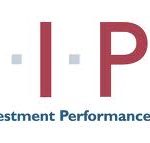Disaster recovery and business continuity planning (DR/BCP) for financial services firms are terms that refer to the pre-planning, regulatory requirements, revival processes, IT techniques, testing and certification that help firms survive natural disasters, terrorist attacks and other emergency events, and then return to business. Although disaster recovery and business continuity planning are related, they are
What is series
“What Is” The Volcker Rule?
The controversial Volcker Rule prohibits banking entities from making risky, speculative investments with their own money. More specifically, the rule restricts banking institutions from engaging in propriety trading, such as investing or sponsoring funds in ways that do not directly benefit their clients. The Dodd-Frank Wall Street Reform and Consumer Protection Act of 2010 included
What is series
“What Is” Libor?
The London Inter-Bank Offer Rate (Libor) is the estimated interest rate, fixed daily, that banks in London use for bank-to-bank borrowing. Overseen by the British Bankers Association (BBA), Libor is calculated by producing the average interest rate submitted by the 18 most credit-worthy banks. Established by the BBA in 1986, Libor has become the global
Buy-Side
“What Is” GIPS?
The Global Investment Performance Standards (GIPS) is a set of voluntary, ethical principles that govern the reporting, valuation, advertising and disclosure issues of the funds overseen by investment management firms. The GIPS benchmarks are primarily used when investment managers present the results of their financial performance to clients or prospective clients. GIPS compliance provides prospective
What is series
“What Is” The Fiscal Cliff?
The “fiscal cliff” metaphor refers to the downward swing in the U.S. economy that was expected to follow if Draconian tax increases and spending cuts took effect in 2013. The tax increases and spending cuts were a result of a debt ceiling agreement reached in 2011 between President Obama and Congress. The agreement followed a
What is series
“What Is” Risk Management?
For financial services firms, risk management is the process of managing exposure and mitigating losses that can come via financial transactions. Risk management practices involve identifying and analyzing the potential losses of an investment and developing strategies that are consistent with an organization’s objectives to eliminate or minimize potential risks. Risk exposure can arise from
Data Management
“What is” Market Data?
Market data refers to the electronic streaming of prices, volumes and related information used for the trading of securities. Most market data emanates from trading venues such as stock and derivatives exchanges while reference data comes from issuers and is usually collected by market data vendors. Firms perceive price data via ticker symbols. Firms can
What is series
“What Is” FINRA?
The Financial Industry Regulatory Authority (FINRA) is the largest, independent regulator of securities firms working in U.S. trading markets. A non-governmental and non-for-profit organization, FINRA’s mission is to serve all investors, ranging from large, corporate investors to individuals. The organization’s primary goal is to ensure that all investors receive basic protection by regulating and monitoring
What is series
“What Is” A Separately Managed Account (SMA)?
A Separately Managed Account (SMA) is a private financial portfolio that is managed by registered financial advisor or through a brokerage for the benefit of the individual investor. This investment portfolio can include stocks, bonds, cash or any other form of traded securities. In comparison, mutual funds involve hundreds of investors often via multiple groups.
What is series
“What Is” Anti-Money Laundering (AML)?
Anti Money Laundering, or AML, refers to a global push to stop the flow of currency generated by illegal activity such as that of organized crime and terrorist groups. AML practices require financial institutions to monitor and detect money-laundering through a series of regulations and procedures that track income flows and identity. In essence, money










